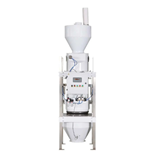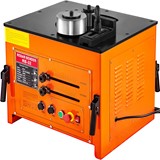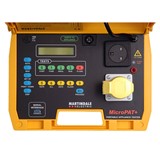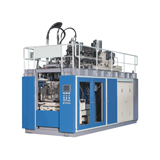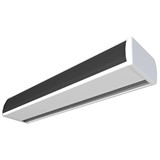Several industry groups - including representatives of coalminers, aluminium producers and retailers - criticised the federal government's planned carbon pricing scheme.
But the renewable energy industry welcomed the scheme while steel producers and petroleum retailers said measures to help industry would help mitigate the full effects of the carbon pricing.
Accounting firms said businesses could now make plans because the details of the likely scheme were now available.
The federal government on Sunday set a price on carbon of $23 a tonne, to be paid by Australia's 500 largest polluting companies from July 1, 2012.
"Large parts of industry will be underwhelmed," Australian Industry Group chief executive Heather Ridout said.
"This is especially so in these very uncertain economic times."
The initial $23 a tonne would be a major shock to industry, Ridout said.
In 2013-14, the carbon price will rise to $24.15 a tonne and then to $24.50 in 2014-15 based on a 2.5 per cent increase each year plus inflation.
Australian Chamber of Commerce and Industry chief executive Peter Anderson said the tax would weaken the Australian economy as it would hit many businesses outside the 500 indirectly.
The Australian Coal Association reiterated its opposition to the scheme, warning that mines would close.
The government set aside $1.3 billion of funding over six years for the coal sector.
The Australian Aluminium Council said the scheme would hit the industry with rising production costs in the coming years.
The Australian Retailers Association said its members would cop the full effect of price increases because they were at the end of the supply chain, particularly at a time when consumers were already reluctant to spend.
But some industries welcomed the scheme.
The Australian Geothermal Energy Association (AGEA) said the scheme would provide a foundation for the development of clean energy projects.
The $10 billion Clean Energy Finance Corporation, to supplement the existing $3.2 billion in funding for the industry, was an important step forward, AGEA chief executive Susan Jeanes said.
Jeanes said more incentives would need to be added to encourage investment in the sector.
Steelmakers OneSteel and BlueScope said the proposal to include a specific plan for the steel industry as part of the carbon pricing scheme was sensible.
The government included a $300 million four-year transitional support package for the steelmaking industry.
Caltex Australia welcomed the package because it would not apply to fuels used in light vehicles.
Additionally, the transitional assistance announced for oil refining would help to keep local refiners on a level playing field with overseas competitors.
Dylan Byrne, director for sustainability at accounting firm BDO, said it was good that the scheme was similar to the scrapped Carbon Pollution Reduction Scheme (CPRS), because it meant companies wouldn't have to completely rethink their approach.
CPA Australia said the carbon price policy provided business with some much-needed certainty around which to plan.
The Australian Council of Superannuation Investors said the scheme would help funds to reassess the quality of their investments.





